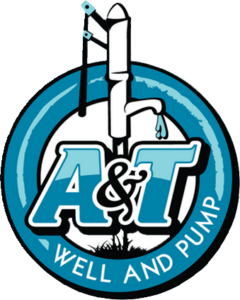If you’re a private well owner, you already know that keeping your well pump in…
If you rely on a well to supply water to your home, you probably don't know a lot about the inner workings of how the water comes out of the ground and into your home. As long as everything is working fine, that's completely understandable, but in case you ever need to do any troubleshooting, our well pump repair company is providing an in-depth look at a question we're asked frequently, which is, "What Is a Well Pump?"
What Does a Well Pump Do?
First, let's just look at the basics. Living in the Raleigh area, the ground water is around 300 feet below ground on average. In order to pull the water out of the ground and send it into your home, you need a well pump. It pulls or pushes the water out of the ground, up through a supply pipe and into your home's pressure tank where it's stored until needed. As the tank fills with water, the air pressure inside pushes it through your faucets when turned on. Then, when the tank gets low, it sends a signal to the pump to kick back on and send more water into the tank. Pretty neat, right?
Types of Well Pumps
How the well pump works depends on the type you have. There are two key types of well pumps:
- Jet Pump: Located inside the well but above the water line, the jet pump pulls water up from the ground and sends it into the supply pipe. These are primarily used in shallow wells that are less than 100 feet deep.
- Submersible Pump: These are located well below the water line, often a few hundred feet deep. They push the water upwards into the supply pipe.
Most homes in the Raleigh area rely on a submersible well pump due to the depth of the water table.
How Long Does a Well Pump Last?
A general guideline is that most well pumps last around 8 to 15 years. Much of that depends on the quality of water - water that's high in sediment may clog up the pump and cause it to burn out more quickly - and it also depends on proper maintenance. Having it inspected annually for any concerns, as well as having your water tested is a good way to fix issues quickly and keep it lasting longer. Our well pump repair company often replaces well pumps that are well over 20 years old, so they can definitely hold up to the test of time.
Signs It's Time for a New Well Water Pump
If you're not sure how old it is, here are a few guidelines to help you notice the signs your water pump is going out.
- You don't have any water;
- Your water pressure is incredibly low;
- Air is "spitting" from the faucet;
- Dirty water with sediment or dirt in it;
- Well pump is running continuously;
Buying a New Pump for Your Water Well
If you need a new submersible water pump, they come in all different sizes and knowing the right kind for your home is important to getting the best results. Too much horsepower or too little horsepower could shorten its lifespan. To help give you a better idea, your current pump will have an identification plate that will have the horsepower listed.
If it's not the right size (because the existing one may be too large or too small), choose a pump based on the well’s depth. For a well that is less than 25’ you use a shallow well jet pump, wells that are 25-110’ you should use a deep well jet pump, and anything 25-400’ you can use a submersible pump. To calculate how many gallons per minute (GPM) your house would need, calculate the number of water fixtures in the kitchen, bathrooms, and outdoors, taking care to include showers, sinks, toilets, outdoor spigots, and appliances like the washer. The number of fixtures in your house multiplied by 60 is your GPM. However, if you're not comfortable determining the right pump on your own, a certified well technician can help you choose the right one for your home.
Contact Us for Well Pump Repairs and Replacement
We Proudly Serve Raleigh, Cary, Durham, Chapel Hill, and the Surrounding Areas.
When you need answers to your well pump questions, call our well pump repair specialists at 919-291-4063 to request a quote. We proudly offer a variety of services for your water well.
Contact Form
We would love to hear from you! Please fill out this form and we will get back to you shortly.
"*" indicates required fields

